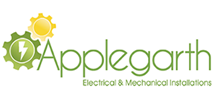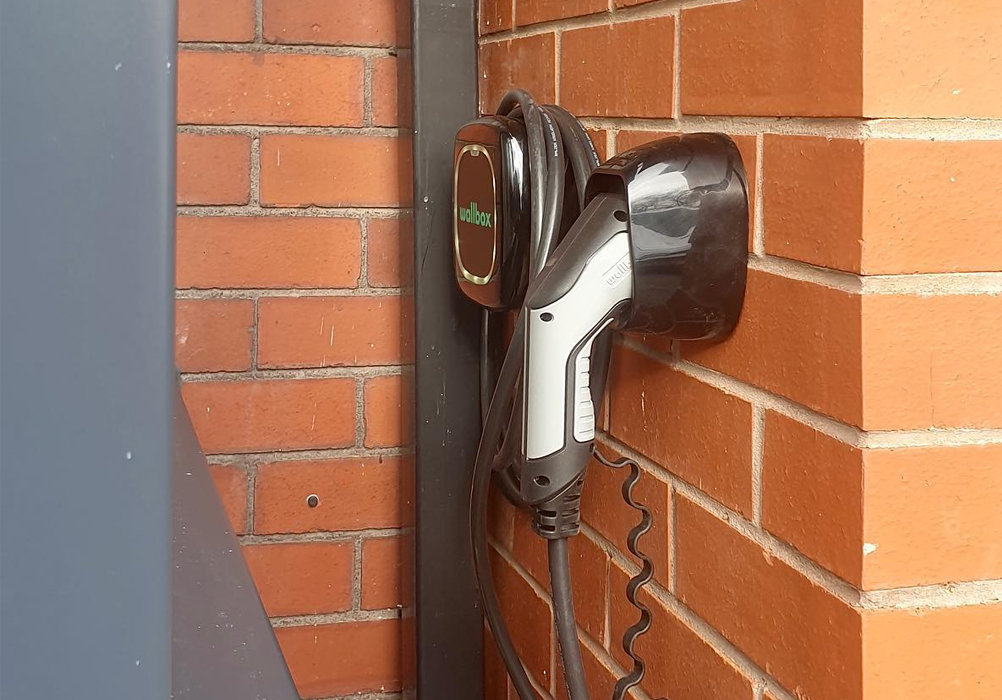Electric vehicles are growing in popularity across the UK, which is being fuelled, in part, by grants for EV charge points installed at residential and commercial properties. While it’s true that public EV charge points are great for topping up your battery, installing a home EV wallbox is more beneficial for EV drivers.
However, new EV drivers often have many questions relating to powering their vehicles. Many of those questions revolve around EV charge point connectors. That’s why we’ve put together this short guide to inform you about their key differences and make the transition over to electric driving even more accessible.
What are the Main Types of EV Charge Point Connectors?
Type 1 and Type 2 connectors are the main types of EV charge point connectors. Your vehicle type and vehicle age will generally determine the type of connector your vehicle will use.
Type 1 Charge Point Connectors
The Type 1 connector is most common in North America and some parts of Europe but rare here in the UK. It has a 5-pin plug, and its official standard is SAE J1772. Older electric vehicle models, such as the Kia Soul EV, usually have Type 1 connectors.
Type 2 Charge Point Connectors
The Type 2 connectors are the most common connectors in the UK. It has a 7-pin plug, and its official standard is 62196-2. Type 2 connectors are suitable for slow and rapid charging, making them ideal for different electric vehicle models. A home single-phase electricity supply will allow you to charge your electric vehicle of up to 7.36kW. A workplace charging point, which has a 3-phase electricity supply, could allow for a charge of 22kW, depending on your car’s circuitry.
Most public EV charging points in the UK currently use Type 2 connectors, although CCS connectors (which incorporate type 2 connectors) are on the rise (see below). The cable you use to charge your electric vehicle will have to have a Type 2 socket to use these charging points.
Combined Charging System (CCS) Connectors
These are becoming increasingly common throughout the industry and are most often available at public rapid charging points. These particular sockets permit rapid DC charging and are designed to charge up your EV very quickly when you are away from home.
Most EV manufacturers now ship their vehicles with this socket fitting, including but not limited to:
- Hyundai
- Kia
- BMW
- Audi
- Mercedes
- MG
- Jaguar
- Mini
- Peugeot
- Vauxhall
- Citroen
- Nissan
- VW
- Tesla
The CCS socket is always combined with either a Type 1 or Type 2 socket. This is so that you can accept both rapid DC charging and home-based AC charging.
When you plug in at a motorway service station, for example, you pick up the tethered CCS 2 connector from the charging machine and insert it into your car’s charging socket. The bottom DC connector will permit the rapid charge, whereas the top Type 2 section isn’t involved in charging on this occasion.
When you’re at home, the opposite is true. You simply plug in the standard type 2 connector into the upper half of your socket, and the lower part of the socket (DC) remains empty.
Why Choose Applegarth for EV Charge Point Support?
Making sense of the different EV charger point connectors and cables can be overwhelming for new EV drivers. To ensure that you make the right decision for your EV charge point, you should consult an accredited installation company, such as Applegarth.
Applegarth is an Office for Low Emission Vehicles (OLEV) approved EV installation company. We are renewable energy installation experts who help EV drivers understand the different EV charge point connectors to ensure that their vehicles perform optimally.
Our trained EV charge point installers are experienced and provide high-quality EV charge point installations for residential and commercial properties. We install EV charge points right across Liverpool, Wirral, Chester, and the rest of the UK.
Whether you need clarity about the type of EV charge point you need for your home or require help with your workplace EV charger installation, Applegarth can provide the support you need.
Contact us today at 0151 649 8350 or email us at info@applegarth.co.uk for an obligation-free consultation and quote.







